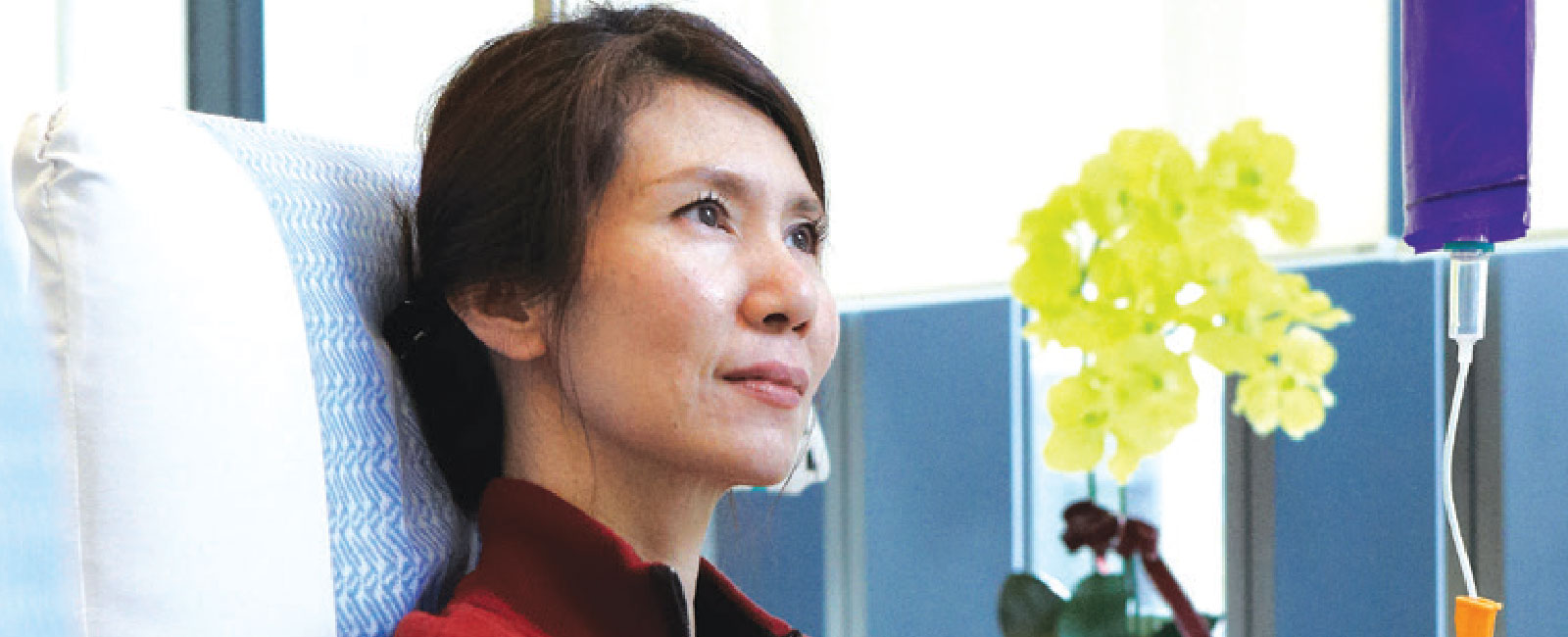
Chemotherapy is the use of drugs to treat cancer.
It can be used as part of cancer treatment to achieve the following effect:
- Slow the growth of cancer cells.
- Prevent the cancer cells from spreading to other parts of the body.
- Kill the cancer cells that may have spread to other parts of the body from the original tumour.
- Relieve symptoms caused by the cancer.
Common Side Effects of Chemotherapy
- Alopecia (Hair Loss)
- Anaemia
- Arthralgia and myalgia (joint and muscle aches)
- Bleeding
- Constipation
- Diarrhoea
- Fatigue
- Infection
- Kidney and bladder effects
- Mucositis (sore mouth)
- Nausea and vomiting
- Numbness/tingling sensation in hands and feet
- Skin and nail changes
Managing Chemotherapy Side Effects
Nausea and vomiting
Nausea and vomiting may happen as a result of chemotherapy. The effects are more prevalent on the day of your treatment and may last 3 or more days after the session.
Some helpful tips to manage nausea and vomiting include:
- Choosing food that is light and settles your stomach, such as dry crackers, sour candy, porridge and soup.
- Drinking more water to prevent dehydration.
- Taking anti-vomiting medication that is prescribed by your doctor.
Alopecia (Hair Loss)
Hair loss, a temporary side effect of chemotherapy, may change the way you feel about yourself. While hair loss may not be prevented, you can consider the following to manage it:
- Avoid using brush rollers to set your hair.
- Avoid using hair dye when you are on active treatment.
- Cut your hair short as a shorter style will make your hair look thicker and fuller.
- Get a wig or headwear before your treatment.
- Use low heat setting on your hairdryer when youare drying your hair.
- Use mild shampoo and soft hair brushes.
Fatigue
Fatigue or feeling tired is a common side effect after chemotherapy. It can be attributed to the cancer itself, emotional stress, insufficient sleep, nutrition deficit and anaemia.
You are advised to manage fatigue with the following suggestions:
- Go to bed at a regular time every night.
- Take short naps during the day.
Dos and Don’ts During Chemotherapy
- Avoid crowded places.
- Avoid eating raw food.
- Avoid gardening to reduce your risk of infection.
- Maintain high standards of personal hygiene.
- Wash your hands with mild soap and water before and after meals.
- Gargle your mouth with salt water to prevent ulcers.
- Maintain a positive attitude.
- Stay active by moving around in your house or living room.
- Take your medication on time.
When do I need to see a doctor?
You are advised to contact your doctor if you display any of the following symptoms:
- Any signs of infection, including redness, swelling and pain around a wound.
- Bleeding that does not stop.
- Chest pain or breathing difficulties.
- Chills and excessive perspiration.
- Extreme dizziness.
- Fever with temperature of 38°C or higher.
- Persistent vomiting or diarrhoea.
- Sore throat with difficulty drinking.
More Support Links:
